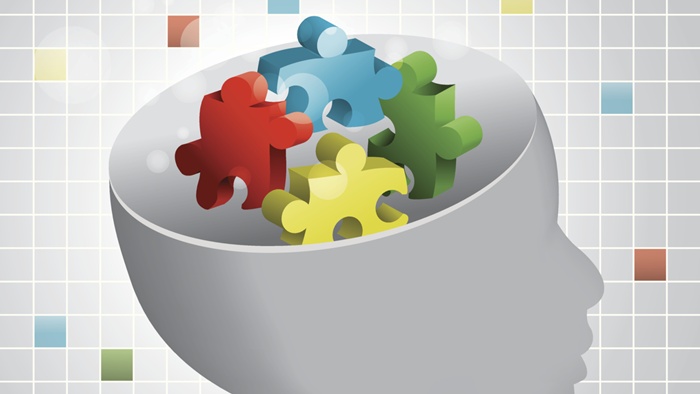
Diet can make a difference in how kids develop and behave—we all know about sugar mania!—and the same goes for kids and adults with autism or autism spectrum disorder, a complex developmental disability that is increasingly common.
One in 64 American children is known to have autism spectrum disorder, according to estimates from the U.S. Centers for Disease Control and Prevention (CDC). There are even some studies that say one in 38 children will develop the condition.
Autism, or autism spectrum disorder, will develop during a child’s first two to three years of life and follow into adulthood. People with the disorder have brain irregularities and typically lack social skills and empathy for the feelings of others. Children may show symptoms such as anxiety, lack of eye contact and repetitive and obsessive compulsive behaviors. Also, autistic children may not speak, while those who do will repeat phrases and words they hear. They also shy away from being touched, loud noises, lights and even some smells.
Physical Signs of Autism and How Nutrition Can Help
Autism also displays an array of physical signs as well. They may experience allergies or food sensitivities, gastrointestinal inflammation, constipation, diarrhea and frequent bacterial infections. They could also be prone to having poor sleep habits.
How does nutrition and diet play a role with autistic children and adults? Autistic children will typically crave the same foods—starches and fats. Potato chips, bread and French fries will be the go-to meals with autistic children. Keeping in mind the diet theory, if you are looking for improvement with an autistic child or adult, looking at diet could be your first approach. Remove these unhealthy fatty and starchy foods!
Here are five other nutritional suggestions to help get your autistic child or adult on the right track.
1. Eat Organic Whole Foods
Organic whole foods help provide necessary nutrition, especially for people with autism. Healthy foods that are clean and organic help support the metabolic function of the body, the digestion and processing of foods into energy and other requirements. Conventional vegetables and fruits are treated with large amounts of pesticides, insecticides, herbicides and other chemicals, which really are toxic to the body and the brain. Pesticides impact children more than adults—children don’t have a completely developed immune system so their bodies have a more difficult time fighting off toxins.
2. Normalize Bowel Function
An important problem to address is bowel function for children with autism. Often they aren’t able to have bowel movements every day and the brain usually absorbs the toxins that aren’t eliminated from the body. Symptoms that may be experienced include loose and quick bowel movements after eating, bowel movements with undigested food and bloating. Dietary improvements to correct gut health include drinking plenty of water and eating an abundance of fiber-rich fruits and vegetables. Probiotics are also an effective supplement for overall digestion and bowel health.
3. Indentify and Remove Food Allergies from Diet
When you determine the food allergies and sensitivities for autistic people, it may also help manage their gastrointestinal difficulties. Often people will crave the foods that cause their food sensitivities. Start by eliminating the foods the autistic person craves most often. The most common food allergens include milk and other dairy products, wheat, gluten, corn, eggs, tree nuts, soy, citrus, fish and shellfish. The addition of vegetables could be very helpful, too, to boost nutrient intake. One treatment to consider is bioanalysis, a technique designed to detect allergies to chemicals, the environment or food.
4. Remove Gluten and Dairy
The big diet concerns are gluten and dairy products. They are the most well-known sensitivities for people with autism and the results after removal can be dramatic. One study of 19 children with autism spectrum disorder, published by the Centers for Disease Control and Prevention, followed a milk-free and gluten-reduced diet. The study showed the children’s symptoms would improve with the elimination or reduction of gluten and dairy. Kids experienced increased social contact, and self-destructive head banging had stopped. Particular peptides (amino acids) found in milk and wheat often lead to considerable disruption of the brain’s chemistry.
5. Liquid or Powder Supplementation
Supplementation can be helpful to address various nutritional issues in people with autism, however it may be difficult for parents to get their kids to take pills. Liquid and powder supplements work well and can be hidden within food and drink. A liquid multivitamin and mineral can be a solid foundation to help address mild nutrient deficiencies. Another beneficial supplement is glutathione, which helps activate and detoxify the liver pathways, connected to improved speech. Glutathione also helps protect against free radical damage and oxidation of vitamins C and E. Other nutritional supplements to consider for children include omega-3 essential fatty acids, digestive enzymes and vitamin B12, which helps reverse the causes of neurological and metabolic degeneration in autistic children.
It is important to address the symptoms typically displayed in kids and adults with autism, and nutrition is a good place to start.
Sources:
Murray, M., et al., The Encyclopedia of Natural Medicine (New York: Atria Paperback, 2012), 348-352.
The Institute of Holistic Nutrition, Nutrition Through the Life Span — Course Notes: Toronto, 2014, p. 401-417.
Dewey, L., Ph.D., “A rise in autism rates: What does it really mean?” philly.com website, April 24, 2014; http://www.philly.com/philly/blogs/healthy_kids/CDC-reports-autism-rise-What-does-it-really-mean.html.
“What is Autism? What Causes Autism?” Medical News Today website; http://www.medicalnewstoday.com/info/autism/, last accessed April 27, 2014.
Ackerman, L., et al., “The ‘Poop’ Page,” Talk About Curing Autism website, July 7, 2010; http://www.tacanow.org/family-resources/the-poop-page/.
“The Problem with Pesticides,” Toxins Action Center website; http://www.tacanow.org/family-resources/the-poop-page/, last accessed April 27, 2014.












